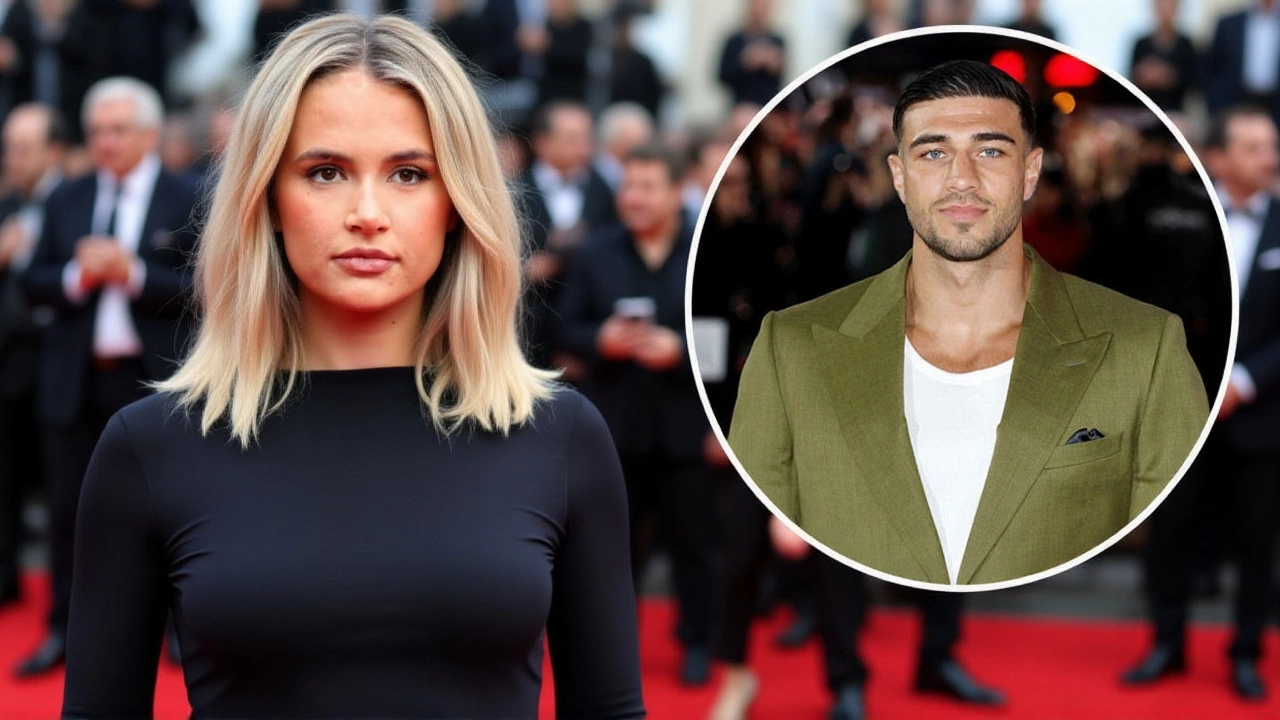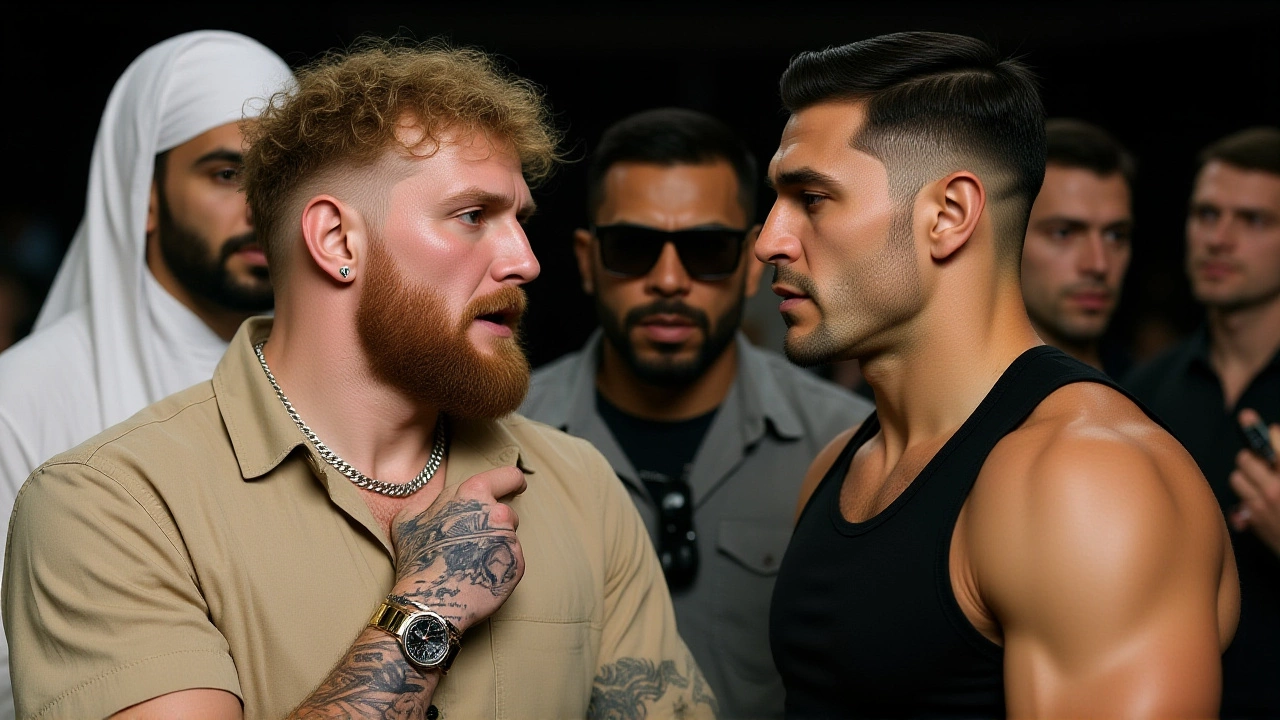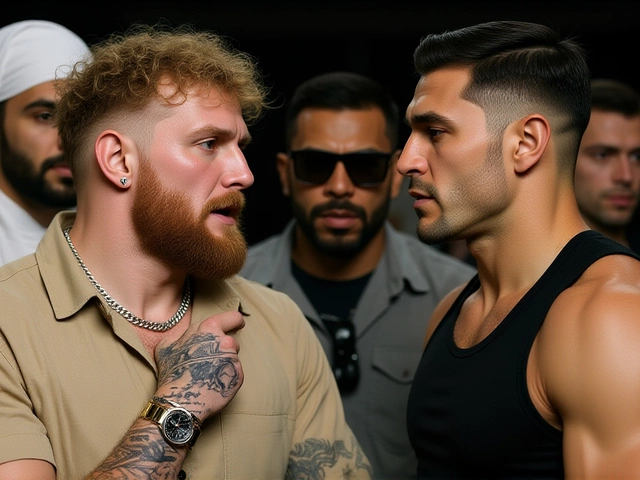When Jake Paul posted a blunt social media message calling Tommy Fury "scared," it wasn’t just trash talk—it was the latest explosion in a feud that’s reshaped the landscape of celebrity boxing. The comment came on November 18, 2025, hours after John Fury, Tommy’s father and trainer, revealed he’d demanded $15 million for a rematch between the two fighters. Paul’s response? "No one is giving Tommy $15 million. So you F off." The exchange didn’t just highlight financial tensions. It exposed a deeper rift: one fighter chasing redemption, the other clinging to leverage—and neither willing to blink.
The Loss That Changed Everything
Jake Paul’s only professional defeat came on February 26, 2023, at the Kingdom Arena in Riyadh, Saudi Arabia. By split decision, Tommy Fury outboxed him. Paul, then 25, insisted he’d won. Fans debated. Social media erupted. And for Paul, that night became a personal obsession. Since then, he’s gone 6-0—beating Mike Tyson in Arlington, Texas, Nate Diaz in New York City, and even Julio César Chávez Jr. in Phoenix, Arizona. Each win was a step toward erasing that loss. But the rematch with Fury? It kept slipping away.
The $15 Million Impasse
According to John Fury, who runs Fury Promotions out of Manchester, England, negotiations were close. He told iFL TV on November 18, 2025: "We are trying to dot a few I’s and cross a few T’s... I have given them a number, let’s see if they can meet it. If they don’t meet the number… F*** off." That number? $15 million. Paul, who reportedly offered $4 million earlier, called it absurd. "You blundering fool. Just say Tommy is scared," he fired back on X. The Fury camp, meanwhile, claimed Paul was avoiding the fight—not because of money, but because he feared losing again. "Offering me the fight in America… a place you know I can’t get to right now," Tommy replied, referencing his ongoing visa issues. That’s the twist: while Paul’s camp moved fast to lock in a deal with Matchroom Boxing, Tommy’s team was reportedly stuck in bureaucratic limbo.

Why Anthony Joshua? The Real Reason
On November 17, 2025, Paul announced he’d signed to fight Anthony Joshua, the 35-year-old former two-time heavyweight champion from Watford, England. The bout, set for December 19, 2025, at an undisclosed venue in Miami, Florida, will stream exclusively on Netflix. It’s a massive payday—estimated at $20 million for Paul—and a career-defining moment. But why Joshua? Because Fury wouldn’t say yes. "We had to put all options on the table," Paul wrote. "Guess who didn’t say yes even for $15M." The implication was clear: Fury’s camp wasn’t just asking for money—they were asking for control. And Paul, who’s built his brand on being the underdog-turned-king, refused to be dictated to.
Tommy Fury’s Long Road Back
While Paul was dominating the ring, Tommy Fury was fighting a different battle. After the 2023 loss, he withdrew from boxing for nearly two years. Alcohol struggles, a broken hand requiring surgery, and public scrutiny took their toll. His return came on May 18, 2025, in Manchester, where he defeated Kenan Hanjalic over six rounds. It wasn’t a statement win—but it was a start. Now, at 25, he’s being asked to step into the spotlight again, this time with a $15 million price tag. Critics wonder: Is he being protected—or held back? His father, John Fury, has been his manager since he turned pro. But in an era where fighters like Canelo and Gervonta Davis negotiate their own deals, Tommy’s dependence on his dad raises eyebrows.

What’s Next? The Ripple Effect
The fallout is already spreading. DAZN and Sports Illustrated are analyzing whether Paul’s pivot to Joshua signals a broader trend: celebrity boxers choosing high-profile, high-reward opponents over personal vendettas. Meanwhile, Moses Itauma, the 19-year-old German prospect, has publicly warned Paul: "You’re stepping into a lion’s den with Joshua." Even Tyson Fury, Tommy’s half-brother and former WBC heavyweight champ, weighed in with a prediction: "Jake’s going to get his ass handed to him."
For fans, the real question isn’t whether Tommy Fury is scared. It’s whether the system—where fathers control sons’ careers, where social media fuels feuds, and where money overrides legacy—is still serving the sport. Paul didn’t just walk away from a rematch. He walked away from a narrative he no longer wanted to be part of.
Frequently Asked Questions
Why didn’t Tommy Fury accept the $15 million offer?
Tommy Fury’s team didn’t reject the money—they rejected the terms. Reports suggest the offer came with conditions: a U.S. fight date, limited media control, and a short training window. Tommy, still recovering from surgery and facing visa delays, couldn’t guarantee he’d be cleared to enter the U.S. by December. His camp believed the offer was designed to pressure him into a risky, ill-prepared fight—not a fair rematch.
How does this affect Jake Paul’s legacy?
Paul’s decision to fight Anthony Joshua instead of Tommy Fury shifts his narrative from "avenger" to "strategic opportunist." Beating a legitimate Olympic gold medalist and former world champion adds legitimacy to his career. But it also risks making him look like he avoided a challenge. If he wins, he’s a boxing phenom. If he loses, the $15 million standoff becomes a footnote in his downfall.
Is Tommy Fury’s father, John Fury, overstepping as his manager?
John Fury’s involvement is common in British boxing families—Tyson Fury’s father played a similar role. But in today’s market, where fighters like Canelo negotiate directly with promoters, having a parent as the sole decision-maker can appear outdated. Tommy, 25, is an adult. His silence during the public feud suggests he may not be in full control. That dynamic could hurt his marketability long-term, especially if he wants to compete outside the UK.
Could Jake Paul and Tommy Fury still fight in the future?
Absolutely. If Paul beats Joshua, he’ll be in a stronger position to dictate terms. If Tommy Fury wins his next fight and regains momentum, he’ll have leverage too. A rematch could happen in 2026—possibly in the UK, where visa issues are less of a barrier. The $15 million demand may be dead, but the rivalry isn’t. It’s just waiting for the right moment.
What role does Netflix play in this fight’s significance?
Netflix’s involvement means this isn’t just a boxing match—it’s a global entertainment event. With a reported $50 million budget, Netflix is betting on Paul’s social media reach and Joshua’s global fame. That kind of investment forces fighters to think beyond pay-per-view. It turns a rematch into a business decision, not just a personal one. The pressure to perform isn’t just from fans—it’s from algorithms, subscribers, and streaming metrics.
What’s the historical precedent for this kind of standoff?
The most comparable moment was Floyd Mayweather’s refusal to fight Amir Khan in 2012 over purse disagreements—Mayweather later fought Manny Pacquiao instead, a far bigger payday. Similarly, Mike Tyson avoided Evander Holyfield in the early ’90s due to contract disputes. History shows: when money and ego clash, the rematch often dies. But the public remembers the one that never happened.

